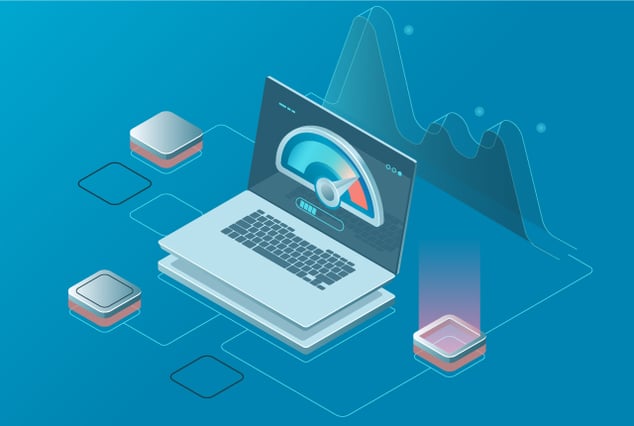
SAP (Systems, Applications and Products) is a software package that enterprises use to manage business processes. It integrates all operations including finance, sales, production, logistics, distribution, accounting and human resource.
By executing all business processes in a SAP system, information can flow from one module to another without unnecessary data entry. SAP software helps enterprises to run business processes efficiently while reducing operational costs.
In this complete guide, we explore answers to your most pressing questions, including:
- What is a SAP test?
- What different types of testing in SAP are essential?
- What’s required during an SAP implementation?
- What’s required during an SAP configuration?
- What are the best ways to maintain SAP software?
What is SAP Testing?
In QA, SAP testing is the process for validating the functionality of SAP modules in order to confirm that they perform as intended. QA engineers execute different types of testing in SAP whenever there are changes within this ERP (Enterprise Resource Planning) software, be it fixes and patch management, implementing new modules or updating configurations. Unlike many conventional testing methods, SAP testing is an output-based testing methodology.
SAP modules support all teams from human resource to finance and sales. Since this system is responsible for maintaining a database of information, it’s important to regularly carry out functional unit testing in your QA process so that all these processes deliver expected outcomes continuously.
Different Types of Testing in SAP
For a successful development cycle, your QA team should plan to run various types of SAP testing. We recommend including these different types of testing in SAP within your QA process.
- Unit Testing: Unit testing in SAP focuses on the functionality of various units within the SAP system. This kind of SAP testing contains testing interfaces, workflows, reports, forms, conversions, data transfer rules and security authorization within the system.
- Integration Testing: QA testers run these tests to verify that multiple components still function correctly when integrated. Integration testing often applies real data when tested in the testing environment and ensures that triggers, reports and workflows all function properly.
- Regression Testing: Regression testing occurs whenever new updates are configured, patches are applied or new interfaces are added. Out of the various types of testing in SAP, regression testing confirms that existing functionality within the SAP system still performs as expected.
- Performance Testing: As the name suggests, this type of SAP testing determines if the SAP software performs as expected. Performance testing focuses on increasing the stability of the SAP software by testing system responses and concurrent user loads in order to identify any system obstructions.
- Functional Testing: Since SAP applications depend on high configurability, functional tests determine whether or not the functionality of all modules meet business requirements. QA engineers create test cases, test scenarios and test requirements in order to perform functional unit testing in SAP.
- User Acceptance Testing: The best way to answer what is user acceptance testing in SAP is by looking at the product from the user endpoints. In other words, user acceptance testing focuses on the system’s ability to carry out all business requirements tied to designated job functions. QA teams must understand all business processes in order to ensure the desired features and functionalities are available and functioning correctly.
- Security Testing: This type of SAP testing confirms the integrity and safety of the SAP application by making sure that only authorized system users can access appropriate data and execute relevant transactions. Security testing for SAP focuses on high-risk areas within the system including network security, portal security, product security, operational security, access control and source code audit.
- Portal Testing: Since SAP systems feature multiple portals, depending on organizational requirements and business processes, it’s essential to carry out tests for the functionality of each of these portals. Alongside functional unit testing in SAP, QA testers often check the portals across different browsers and operating systems for further validation.
What is SAP Implementation?
SAP implementation is a collection of practices focused on making the SAP system go live within an organization, from designing to building and tuning. Put simply, SAP implementation is turning the system on within a business’ network.
It’s not as easy as flipping a light switch. Every business has distinct requirements for SAP configurations: internal modules, customizations and third-party integrations—all of these are taken in consideration when implementing the application for an organization.
Generally, SAP implementation follows these key steps:
- Preparation and project planning
- Blueprinting all business requirements in detail
- Implementing business process requirements
- Preparing to go-live, including staff training and SAP types of testing
- Transitioning to the new system
- Supporting business processes during post-live until fully implemented
What is SAP Customization?
The process of adding functionalities to a live SAP system is called SAP customization. This often entails making enhancements that create reports, UI workflows or programs that are customized for a company’s needs through custom code.
Customization usually occurs for improving the experience of the end user, be it to modify parameters in data collection or updating the layout of the user interface. To maintain best practices, SAP testing should follow any customization before pushing the updates live into the production environment.
How to Maintain SAP Software
There’s a lot of maintenance required after configuring, customizing and deploying your SAP system. It’s up to your development and QA teams to ensure quality performance across the application by:
- Fixing bugs
- Adding new features and functionalities
- Updating SAP Kernel
- Implementing OSS notes
- Supporting pack and stack updates
Your system must remain in optimal condition in order to add business value across teams. SAP maintenance requires regular TLC of your system, including:
- Inspection: Identify the current state of your SAP system
- Repair: Restore your SAP application to its optimal state
- Preventive: Minimizing breakdowns through ongoing inspection and repairs
SAP End to End Lifecycle and Corresponding Testing Phases
In SAP testing, the Software Testing Life Cycle is a series of steps carried out to confirm that the software exceeds quality standards across market requirements and business goals. Each testing phase has specific goals and deliverables that impact subsequent phases of the project.
- Test Preparation: Testers identify what tests should be performed and what is needed in order to reach these testing objectives, such as establishing testing metrics and testing methods. Business processes to be tested as well as KPIs are determined during this phase.
- Test Execution Phase: Testers perform all required test cases through either manual or automated testing. QA teams log defects, track progress and report testing status throughout this phase.
- Test Evaluation Phase: Testers verify if all test cases were executed well through defect analysis and thorough documentation. QA teams determine ways to improve for the next lifecycle during this phase.
Benefits of SAP Software for Your Business
Here are some ways in which businesses can benefit by implementing SAP software in their tech stack:
- Perfect for Any Business: SAP provides solutions that can be tailored specifically to your enterprise, no matter the size of your company. SAP’s comprehensive portfolio of cloud-based ERP solutions means having access to all the tools you need to run your business successfully.
- Innovative Technology: SAP’s decades of experience means their technology is up to date on the latest innovations required for modern businesses. Its cloud-based offerings make the system accessible from anywhere. Through the platform’s advanced capabilities, your company can boost efficiency and productivity by automating repetitive tasks.
- Flexible and Secure: SAP ensures that your sensitive data is secure by protecting your business from potential hackers. Because of their expertise, their software reduces the number of threats faced by your business daily. Furthermore, its public and private cloud options means you can operate your business where it makes the most sense for your team.
Does your team need help carrying out these best practices for SAP testing? You can partner with a leading software testing company like QASource. Our team of testing experts specialize in a variety of QA services with years of experience performing SAP tests across industries. Let us help your team understand the process of implementing SAP within your business processes for a smooth transition within your organization. Get a free quote today.



